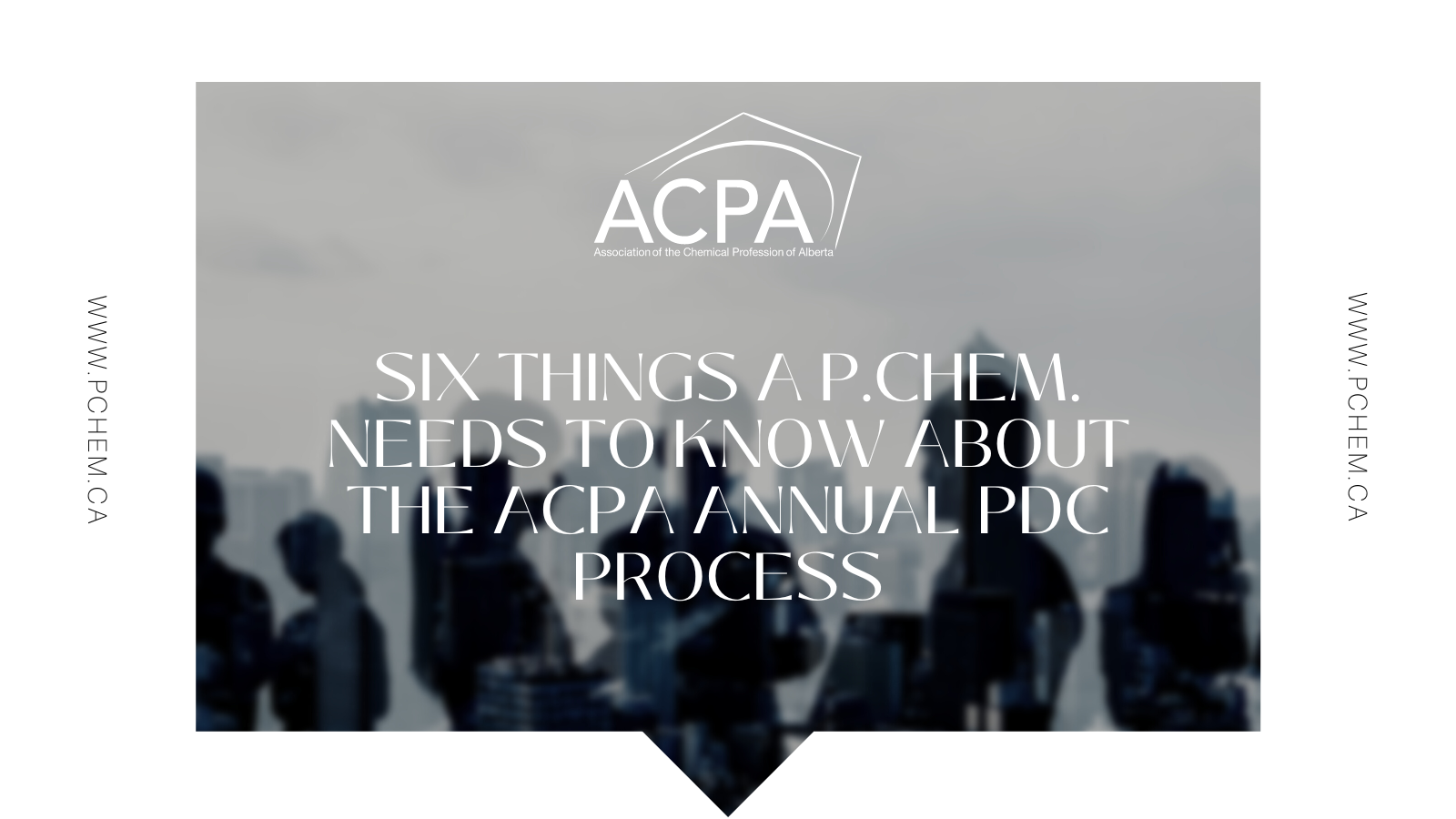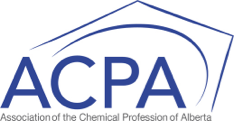Six Things a P.Chem. Needs to Know About the ACPA Annual PDC Process

1. Professional Development for ACPA regulated members is a requirement under POARA
A P.Chem.’s annual process of claiming and documenting Professional Development Credit (PDC) is part of the assurance process the ACPA has implemented to monitor and report out on the professional development of our regulated members. This process is a critical path for the ACPA to meet its obligation to demonstrate continued relevance of our regulated members skills and protection of the public through the professional practice of chemistry. As part of our covenant with the Provincial Government, the expectation of professional development is mandated within the POARA regulations.
2. ACPA uses Professional Development Credits as a method for regulated members to record Professional Development Activities
The PDC process is common across all professional associations in Alberta as each have a method for monitoring and documenting member’s annual PDCs. For the ACPA, PDC documentation is used to demonstrate to our Provincial Regulator, under the Professional and Occupational Associations Regulation Act (POARA) (soon to be the Professional Governance Act (PGA)), that our regulated members regularly complete professional development activities. ACPA, through the Practice Review Committee, completes an annual assurance exercise on a subset of the membership’s annual PDC submissions to validate compliance with the regulations. The results of the audit are reported to the ACPA Board of Directors and the Regulator as part of our annual POARA report.
3. Regulated members are required to record and report Professional Development annually
ACPA regulated members must keep records of professional development activities and report annually, at the time of membership renewal, by submitting PDC forms. Up to 10% of regulated members annual PDC submissions are randomly selected for PDC assurance. A member selected for the assurance audit must submit supporting documentation for the PDC credits claimed in the prior calendar year within the allotted time. Again, the results of the assurance audit are critical for ACPA to demonstrate compliance with our regulations. The audit results are summarized in the annual POARA report; individual member results are not included within the annual report.
4. Regulated (P.Chem.) members are required to participate in the PDC assurance audit
Although being selected for a PDC audit may often seem ominous, punitive, or a waste of time, it isn’t. The PRC understands the challenges, questions, and quandaries our regulated members often face when completing the PDC form. The ACPA PRC is committed to working with and coaching members throughout the audit process. But the selected members must reach out to the PRC Chair, through the ACPA Office, to start the coaching process. If a member doesn’t reach out, they are still required to collaboratively participate in the audit. Failure of a member to respond to the PRC audit may affect a member’s future registration status; failure of ACPA to complete an annual assurance process will affect the Association’s standing with both the Government and public at large.
5. Good practices for maintaining PDC records include:
- Creating a folder to store PD activity records throughout the year.
- PD records may include:
- receipts for seminars, conferences, or training;
- acknowledgement notes of attending ACPA meetings or Technical Seminars;
- a bibliography of papers read, written, or presented; and
- a copy of your current job description.
- Tracking your time spent practicing chemistry, which includes but is not limited to:
- Lab work, chemistry research or development, training;
- Supervising laboratory work, chemistry research or development;
- Managing or directing teams who work with chemical data, (environmental, process, industrial hygiene, safety, etc.);
- Reviewing, interpreting, inferring outcomes, or modelling chemical data and properties;
- Chemical and Instrumentation sales; and
- Other activities too numerous to list in this article.
- Upon receipt of a PRC request to supply PDC supporting documentation for an audit, the best format for your response submission includes a cover letter that references each line of the PDC claimed and supporting documents. These documents may be attached as separate documents to the cover letter or may be combined into a single PDF document which is submitted to the ACPA office. Personal information such as your social insurance number, drivers license number, age, or gender should NOT be included in your response or supporting documentation package.
6. The PDC Assurance Audit is not punitive
The demonstration of your commitment to professional development through your annual submission of PDC forms and if selected, participating in the PDC assurance audit are necessary to meet both your membership requirements to ACPA and the Association requirements under POARA. The ACPA PRC is committed to working with and coaching members throughout the audit process. But the selected members must reach out to the PRC Chair, through the ACPA Office, for assistance before the submission deadline.
